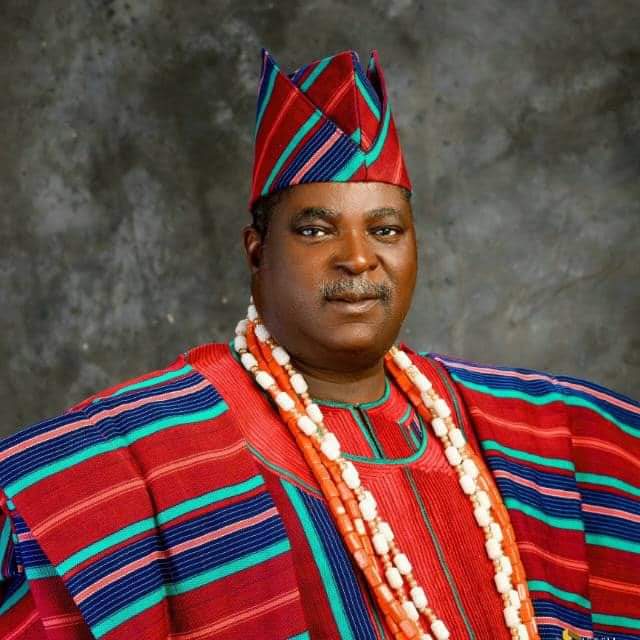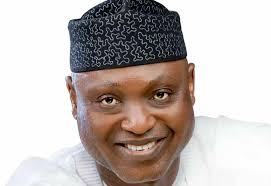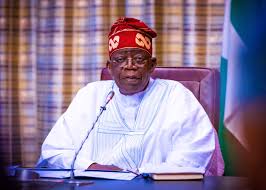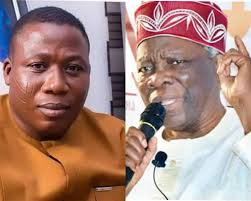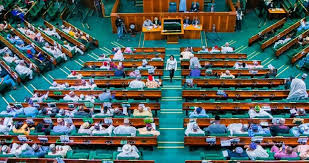
By Ologeh Joseph Chibu
Legislators pushing for a paradigm shift in the system of Government in Nigeria have explained that their motive is to resolve a fundamental issue of governance in Nigeria.
In a statement signed by House of Representative member and
Spokesman Parliamentary Bill Sponsors,Abdulssamad Dasuki made available to Irohinoodua on Thursday said Nigeria stands on the cusp of history adding that lawmakers across party affiliations and regional backgrounds are behind the bill.
He said lawmakers from across the country have come together to present the bills proposing Constitutional
alterations that seeks a transition to Parliamentary System of Government.
He said the bills seeking to alter the Constitution of the Federal Republic of Nigeria 1999, advocate a transition from the current presidential system to a parliamentary system at all levels – federal, state, and local government.
The proposed alterations, when passed, would significantly impact the national political landscape, he assured.
He said Nigerian founders in their wisdom and in a political atmosphere devoid of compulsion, and having considered the interests of their native peoples and their desire to live together in a country where truth and justice reign, where no man is oppressed, and where all citizens live in peace and plenty, adopted the parliamentary System of Government.
“That was the governance system of the First Republic, a period when legislative and executive powers were exercised by the representatives of the people in parliament and in the executive, and by the nature of the system these representatives were accountable to the people. For six years while it was in operation, the system worked for the country,”
He said the collapse of the First Republic and the long stretch of military rule culminated in the adoption of a new system of government, theoretically fashioned after the Presidential System of the United States but in practice imbibed the uttermost attributes of military rule.
“No wonder the Nigerian President appears to be one of the most powerful Presidents in the world.Over the years, the imperfections of the Presidential System of Government have become glaring to all, despite several alterations to the constitution to address the shortcomings of a system that has denied the nation the opportunity of attaining its full potentials.”
He said among these imperfections are the high cost of governance, leaving fewer resources for crucial areas like infrastructure, education, and healthcare, and consequently hindering the nation’s development progress, and the excessive powers vested in the members of executive, who are appointees and not directly accountable to the people.
“The bills presented today seek a return to the system of government adopted by our founders, which made governance accountable, responsible and responsive, and ultimately less expensive.”
He said with the presentation of these bills we hope to achieve the following:
- Ignite, provoke a national conversation about the future of Nigerian governance system.
- To ensure robust public debates, stakeholder consultations, expert analyses, and a thorough and informed decision-making process.
- To raise awareness about this significant development and encourage constructive dialogue on the potential implications of these proposed constitutional alterations. The future of Nigerian governance rests on informed public engagement, and responsive and responsible leadership.
The fundamental changes outlined in the bills include:
- Parliamentary System: Replacing the President with a Prime Minister to serve as the Head of Government and establishing the office of the President as a ceremonial leader. These elective offices are to be chosen from the elected members of the legislature.
- Legislative Elections: Shifting the process of electing Governors and Chairmen of Local Governments from general election to voting within their respective legislative bodies.
- Streamlined Administration: Potentially reducing bureaucratic hurdles and fostering closer collaboration between the executive and legislative branches.
He said the conviction is that a streamlined Executive Branch, which replaces the President and Vice President with a Prime Minister and Cabinet chosen from the legislature could lead to a smaller central government, reducing salaries and administrative expenses.
“We also hold strongly that shifting the election of Governors and Local Government Chairmen from general election to votes within their respective legislative bodies could save billions spent on state and nationwide campaigns, because ministers, commissioners (at the state level) and supervisors (at the local government level) emerge from parliament with greater coordination between the executive and the legislature, just as there will be increased legislative scrutiny, which would make cabinet members responsive to the yearnings of the people and more accountable.
He said the proponents of the alterations to the constitution for a parliamentary system of government have placed the interest of Nigeria above all other interests.
“Our hope is that the national conversation that would be ignited by these bills would lead to a system of government that works and our dear nation would attain her full potentials” he said

